(4)スターリンによる戦争神話の創造と歴史管理~現実を覆い隠す英雄物語の効用とは
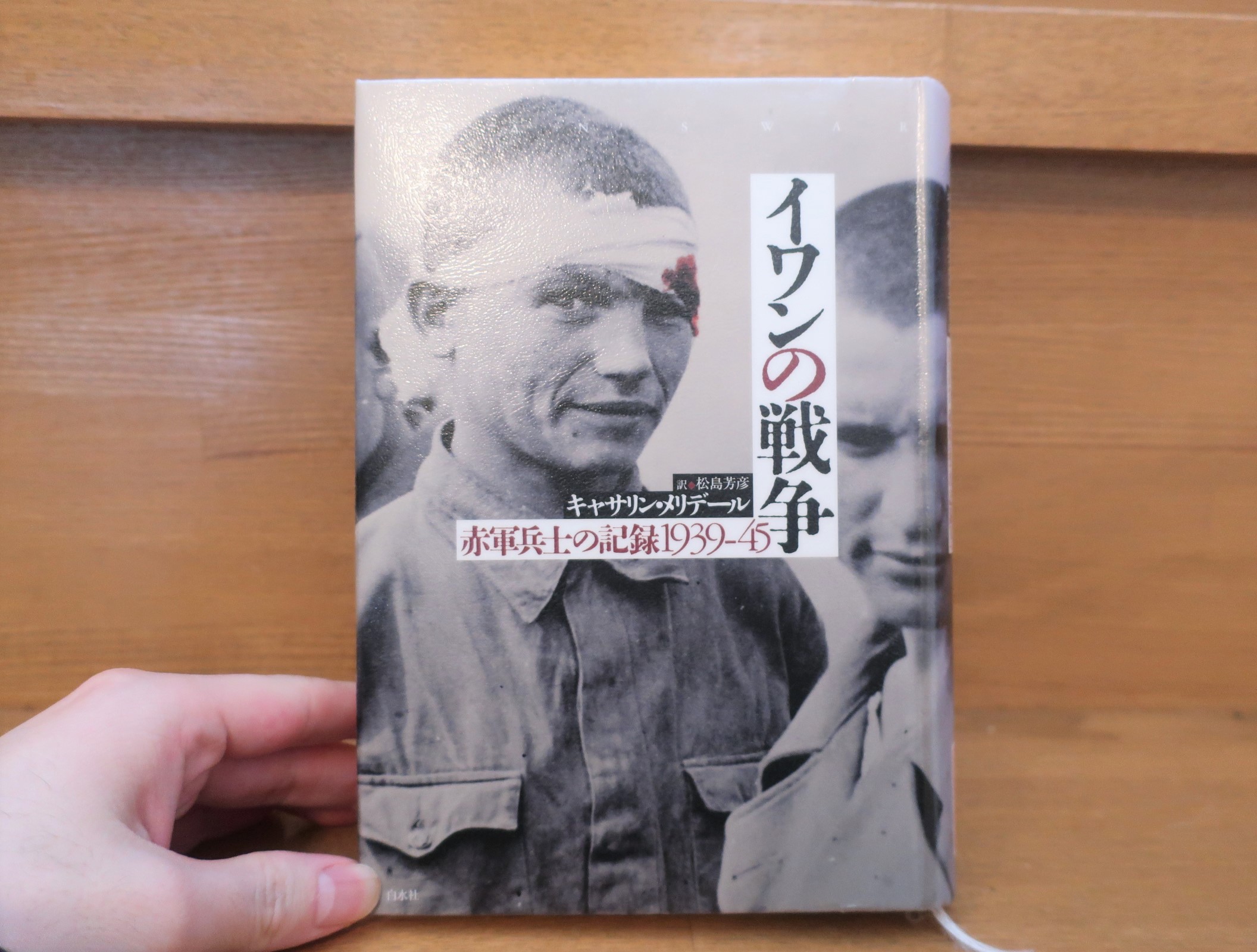
キャサリン・メリデール『イワンの戦争 赤軍兵士の記録1939-45』を読む⑷
前回の記事「(3)ソ連の人海戦術と決死の突撃~戦場における「ウラー!」という叫び声とは」ではソ連による恐怖の人海戦術と突撃についてお話ししました。「ウラー!」の叫び声とともにナチス軍に突撃し、死屍累々となりながらも「数の力」で進んで行く姿が戦慄でした。
今回の記事でも引き続き、キャサリン・メリデール著、松島芳彦訳『イワンの戦争 赤軍兵士の記録1939-45』を読んでいきます。
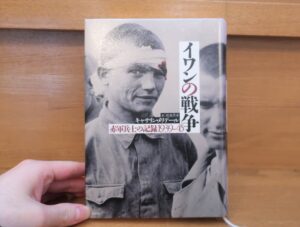
この本では一人一人の兵士がどんな状況に置かれ、なぜ戦い続けたかが明らかにされます。
彼ら一人一人は私たちと変わらぬ普通の人間です。
しかし彼らが育った環境、ソ連のプロパガンダ、ナチスの侵略、悲惨を極めた暴力の現場、やらねばやられる戦争という極限状況が彼らを動かしていました。
人は何にでもなりうる可能性がある。置かれた状況によっては人はいとも簡単に残虐な行為をすることができる。自分が善人だと思っていても、何をしでかすかわからない。それをこの本で考えさせられます。
では早速始めていきましょう。
スターリンによる戦争神話の創造
1943年になるとソ連がついに優勢に立ちます。ここから政治家たちはさらに国民の士気を高めるために戦争神話を作り出していきます。
政治家たちは一斉に、勝利を自らの手柄にしようとした。この年の二月、スターリンが創設二十五周年に当たり「平和と各国人民の友好を守る軍隊」と呼んだ赤軍を、大げさな称賛が包み込んだ。
赤軍は「前例のない歴史的な戦いを勝ち抜き」、「勇敢な兵士、指揮官、政治将校らは、不朽の栄誉で軍旗を染め抜いた」。
しかし、偉業は兵士だけで成し遂げたのではない。スターリン自身の卓越した役割が極めて重要と強調された。彼の賢明な統率と「軍事的天才ぶり」が成功をもたらしたと説明されるようになった。
だが、その成功のために、何万人もの人間が命を捧げたのだ。党も今や大衆の指導者、教師として登場した。国民の目から見ると、戦争はまるで彼らの戦争であり、自由と尊厳をかけた戦いの叙事詩もまた彼らの独壇場であるかのようだった。
指導者たちは時を移さずに手を打った。一九四三年三月、最初の大祖国戦争博物館が設立された。展示された戦争の姿が、すでに政府公認の戦争観となった。
誕生した輝かしい戦争神話は、あらゆる機会をとらえ巧みに利用された。「撤退」や「降伏」という言葉は検閲で排除され、決して使われなかった。
しかし最も悪質なのは、この戦争でいったい何人の命が失われたのかを示す証拠を隠滅したことだった。スターリングラードの勝利は、五十万人に迫るソ連軍の兵士やパイロットの犠牲を伴ったが、この事実は秘匿され続けた。
べルリン攻略も含めた戦争の全期間を通じ、死亡した赤軍の男女は、敗戦国の死亡兵より多かった。総じて赤軍の人的損害は敵を上回り、敵一人に対して三人が命を落とした。この数字はありとあらゆる手段で隠された。
赤軍の死者数は、そもそも記録自体がない場合もある。大量の死者を葬った場所にしるしを残す余裕さえないのに、穴に放り込んだ遺体など数えられるはずもなかった。
一九四三年以降は少しましになったとはいえ、犠牲を少なめに報告するのは軍隊の習いだった。埋葬した遺体を実際より少なく記録する場合さえあった。何百人も埋葬した墓地が、記録では埋葬者三十五人だったりした。
公式報告はソ連軍の死亡率や兵器の損失を少なく記録する一方で、ドイツ軍の死者は入念に書き残した。
人間の感情まで検閲の対象だった。悲しみはまだ許された。兵士の復讐心をあおるからだ。危険や苦痛がもたらす感情を語ってはならなかった。ソビエト情報局は公刊物が兵士の恐怖感や疑念に触れることを認めなかった。国民向けの戦争記録は、最初の一年を扱ったものさえ、壮大な英雄物語に書き直された。
白水社、キャサリン・メリデール著、松島芳彦訳『イワンの戦争 赤軍兵士の記録1939-45』P217-218
※一部改行しました
ソヴィエト政府にとって都合のいいように事実は解釈され神話は作られていきました。それに合致しないものはすべて黙殺されていったのです。
そしてそうした歴史管理は戦後もずっと続くことになります。
検閲は執拗だった。六十年間、多くの事実について沈黙を強いられた。人間の深層には、痛恨の記憶には立ち返りたくない本能や願望がある。政府はそれを利用し、効果をあげた。快く輝かしい記憶のほうが、兵士にも国家にも都合が良かった。ものごとは単純化され、スターリンの言葉を借りれば、それなりの尊厳を退役軍人に感じさせた。
白水社、キャサリン・メリデール著、松島芳彦訳『イワンの戦争 赤軍兵士の記録1939-45』P219
見たくないものに蓋をする。これは誰しもがそうしたくなるものです。戦争という極限状態で自分が犯してしまったことに対しては特にそう言えるでしょう。
スターリンはそうした人間の弱さに付け込んだのでした。
兵士の精神疾患
スターリン主義の基準では、個人の心の傷は自分勝手な欲望と同列とみなされ、排除された。兵士は集団の部品だった。精神の保守は義務であり、権利ではなかった。文句を言ったり、仮病を使ったり、臆病者の気配を見せた者には、銃殺か懲罰部隊送りが待っていた。
赤軍はこの戦争で、兵士の精神疾患を無視した。というより、戦場では見過ごされたため、心理的問題に関する記録はほとんど残っていない。連合国の兵士が心を病んだように、赤軍兵士も病める精神の犠牲となった事実は、簡単に忘れられてしまった。
人間が感じるストレスは、どこの国の軍隊でも共通しているのだが、ストレスとどう向かい合うかで、赤軍と連合軍の兵士は違っていた。
べロフは自分の無気力が、戦争による神経症であるとは考えてもみなかった。戦争が長引くと、自殺や「事故」が増えたが、彼には傷ついた精神が負荷に耐えられないためだとは思いもよらなかった。
戦時中のソ連の当局者は、英国や米国の担当者とは異なり、精神に異常をきたす原因として、肉体的な要素しか認めなかった。その他の心の病は、弱さや個人的欠陥であり、恥ずべきものとした。
何千人という兵士が、疲労と度重なるストレスのために衰弱して、脱走容疑をかけられて戦場で射殺された。精神疾患のため疲れ果て、あるいは錯乱状態になって、次の戦闘まで生き残れなかった者は、脱走容疑で殺された兵と違って、死亡記録が残っていない。
紛れもない精神障害であっても、入隊後に精神分裂病を発症するなど、極端な例しか記録されなかった。様々な推定があるが、赤軍二千万人の稼動人員のうち、精神を恒常的に病んでいた者は、たった十万人だったことになっている。
この戦争に従軍した医師にとって、「トラウマ」は肉体の損傷だった。脳震とう、脳挫傷と大差はなかった。戦闘は、誰でも経験する不安や疲労を超えた衝撃を兵士に与える。私が一九九六年に聴き取りをした退役軍医らは、これに同意しなかった。砲撃による損傷を示す「挫傷」が当時は妥当な表現だった。
現代の西側世界で通用するトラウマという概念を、軍医たちは知らなかった。彼らは私の話が理解できず、「心的外傷後ストレス」という未知の概念について説明を求めた。彼らが驚くのも無理はない。当時前線で使っていた医学書は、精神の傷には言及していなかったし、同僚の医師や兵土自身の回想記にも、そんな記述はなかった。錯乱は弱さであり恥辱だった。恥辱は戦いの暗い側面や犯罪とともに、戦争の歴史から削除されてきた。
白水社、キャサリン・メリデール著、松島芳彦訳『イワンの戦争 赤軍兵士の記録1939-45』P306-307
※一部改行しました
ナチスの兵士たちが自らの残虐行為に耐えられず精神疾患を患うものが多かったというのは知られていますが、ソ連兵も同じように精神疾患に苦しめられていたようです。
しかも精神疾患を認めないことから記録にも残されていないというのも、精神論に固執するソ連らしいあり方でした。
ソ連の兵士はベルリン進軍の際、ナチスに劣らぬ残虐行為を各地で繰り返すことになります。こうした残虐行為はすでに戦争によって正常な精神を失っていたからこそさらに助長されていたのかもしれません。
ドイツに進軍するソ連兵の蛮行
1944年には完全に形勢が逆転し、今度はソ連がドイツの陣地に進攻していくことになりました。ナチスに占領された住民にとって嬉しい解放となるのかと思いきや、彼らにとってさらなる災厄がやってくることとなったのです。
その冬、英雄や輝ける未来の使徒の多くが、狂ったように戦争犯罪に手を染めた。歴史家は肉欲に溺れた野蛮な男たちと断じた。動物のように本能に身をまかせたからだ。
準備段階ではそんなはずではなかった。党は兵士に丹念に語りかけ、説明し、強引にかつ狡猾に洗脳したはずだった。しかし、あたかも反動のように、兵士はプロイセン各地を暴れまわり、長年の苦しみでたまっていた不満を爆発させた。
苦悩の源は戦時体験だけではなく、何十年も耐えてきた恥辱や無力感、そして恐怖だった。説教を垂れ、人間の最も弱い部分をたしなめた共産党も、お墨付きを出した。それを兵士は受け取った。党は彼らに免罪の隠れみのさえ差し出した。
演説や報告も、『プラウダ』に寄稿するジャーナリストも、ソ連軍の残虐行為には触れなかった。公になった活字を見る限り、まるで蛮行はなかったかのようだ。
当然、兵士が書いたものでも言及はない。残虐な光景は、前線にいた何千人という兵隊の脳裏に焼き付いたに違いない。殺人やレイプを目撃した者は多かった。だが、家に出す手紙には天気の話題を書き続けた。
白水社、キャサリン・メリデール著、松島芳彦訳『イワンの戦争 赤軍兵士の記録1939-45』P346-347
※一部改行しました
ですが、ひとりの勇気あるソ連兵士は次のように記録しました。
レフ・コぺレフはソ連軍士官で熱心な党員だった。そして、この間題では例外的な人物だった。彼は自分が見た蛮行を記録し、自ら考察する勇気の持ち主だった。
道義心を省みない当時の風潮には背を向けた。彼は兵士を責めなかった。暴虐は戦争の産物だったが、敵も責めなかった。彼の怒りは自分が所属する党に向いた。少なくとも、党を支配する幹部たちに憤りを覚えた。
彼の考えでは、ナチスが残した爪痕がどんなにむごくとも、目の前で起きている異常な危機、人間を苛む惨状をつくり出したのは、共産党の指導部だった。彼は書き残している。
「何百万人もの人々が残忍な行為に手を染め、堕落した。戦争だけではなく、わが国の好戦的で強硬で誤ったプロパガンダにも責任がある。戦争が始まる前には、そのようなプロパガンダも必要だったろう。戦いを続けるためには、なおさらだった。今もそう信じている。だが、もう一つ分かったことがある。このような種からは、毒入り果実しか実らない」。
部隊が国境を越えるはるか前から、苦々しい収穫は始まっていた。だが、最盛期はプロイセンで迎えた。戦争に勝つための教えが、残虐行為を正当化していた。
白水社、キャサリン・メリデール著、松島芳彦訳『イワンの戦争 赤軍兵士の記録1939-45』P348-349
※一部改行しました
「このような種からは、毒入り果実しか実らない」
この言葉の持つ意味は非常に重いものであると思います。
残虐な敵を躊躇なく殺すためにはそれに負けないほど極端なイデオロギーが必要だった。
しかし戦う敵がいなくなった時、その暴力は無抵抗な住民に対しての果てしない残虐行為へとつながっていってしまうのでした。
次の記事ではそうしたソ連兵による暴虐についてお話ししていきます。
続く
Amazon商品ページはこちら↓
次の記事はこちら

前の記事はこちら

ソ連兵は何を信じ、なぜ戦い続けたのか「独ソ戦に学ぶ」記事一覧はこちら

関連記事
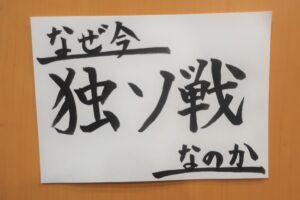
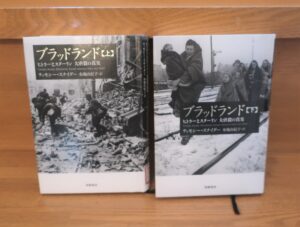



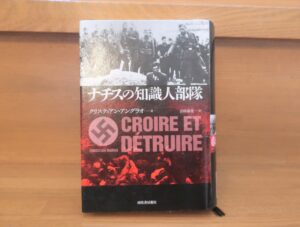
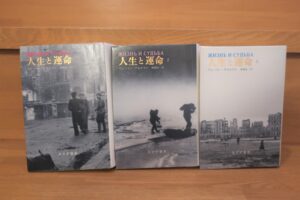
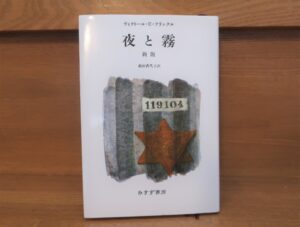
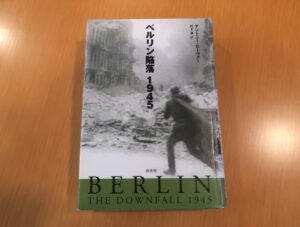
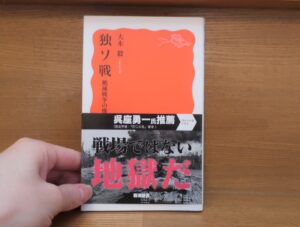

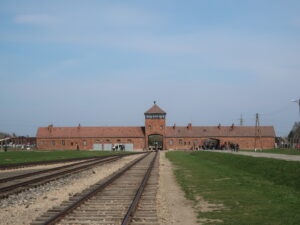
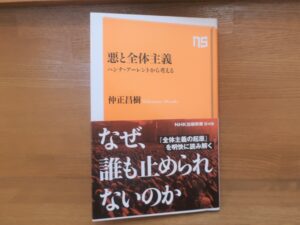
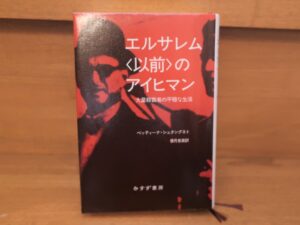
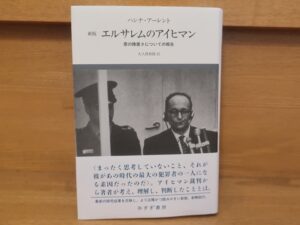
コメント